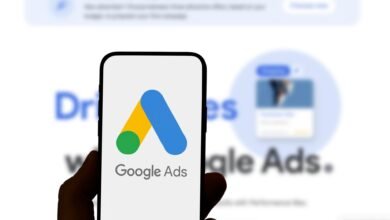Can Small Businesses Still Win with Google Ads?

▼ Summary
– Google Ads is a key marketing channel but increasingly difficult for small businesses due to competition from big brands.
– Over 50% of respondents in a poll believe small businesses are priced out of Google Ads due to rising costs and budget constraints.
– Small businesses face challenges like higher CPCs, lower data volumes affecting automation, and lack of in-house expertise for account management.
– Bigger brands benefit from stronger brand awareness, which improves click-through and conversion rates, while small businesses struggle to build recognition.
– Small businesses can compete by focusing on quality traffic, accurate conversion tracking, and using Google’s creative tools to outsmart rather than outspend.
For small and medium-sized enterprises, Google Ads remains a viable marketing channel, though the landscape has grown increasingly competitive. While large corporations often dominate with substantial budgets, smaller players can still carve out meaningful success by adopting strategic, intelligent approaches rather than trying to match financial firepower.
One of the most pressing issues for smaller advertisers is the rising cost-per-click (CPC), which can quickly deplete limited budgets. Big brands can absorb these increases, but smaller operations may find their ad spend doesn’t go as far as it once did. This financial pressure is compounded by the challenge of data volume. Features like automated bidding and responsive search ads rely on significant data to perform optimally. Smaller campaigns often take longer to gather enough information, delaying results and requiring patience many businesses simply can’t afford.
Another hurdle is account management. Effective Google Ads campaigns demand expertise in bid strategies, keyword selection, and structural best practices. Large companies often have dedicated teams or agencies; small businesses usually lack those resources. Without expert guidance, many are not using the platform to its fullest potential.
Brand recognition also plays a critical role. Established names benefit from consumer trust and familiarity, which boosts click-through and conversion rates. Smaller businesses, even with superior products, must work harder to build credibility and visibility from the ground up.
Despite these obstacles, there are clear pathways to success. Focusing on high-quality, relevant traffic often yields better returns than pursuing sheer volume. By targeting specific audience segments closely aligned with their offerings, small businesses can improve conversion rates and maximize the value of each click.
Accurate conversion tracking is another non-negotiable. Without it, businesses can’t measure performance or optimize effectively. For organizations where every dollar matters, understanding which clicks lead to real value is essential.
Creative tools within Google Ads, such as Asset Studio, allow small businesses to produce professional-looking visuals and videos without outsourcing. This saves both time and money, though it’s important to maintain brand consistency even when using automated design features.
Beyond Google, platforms like Microsoft Advertising offer lower costs and access to a different demographic, often older and more professional. Social media channels like Meta and TikTok also provide valuable opportunities to reach target audiences outside traditional search.
Success on Google Ads for smaller brands isn’t about outspending competitors, it’s about outsmarting them. With precise targeting, diligent tracking, and smart use of available tools, small businesses can not only compete but thrive.
(Source: Search Engine Land)





